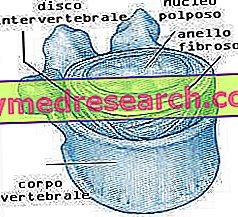
PLEASE NOTE: MEDICINAL PRODUCT IS NO LONGER AUTHORIZED
What is Revasc?
Revasc is available as a powder and solvent for solution for injection in a vial.
Revasc contains the active substance desirudin.
What is Revasc used for?
Revasc is indicated for the prevention of blood clot formation in adult patients undergoing hip or knee replacement surgery.
The use of Revasc is indicated for short periods.
The medicine can only be obtained with a prescription.
How is Revasc used?
Revasc is given by subcutaneous injection, preferably in the abdominal area. Treatment with Revasc should be started under the guidance of a doctor who specializes in coagulation disorders. The recommended dose of Revasc is 15 mg twice a day. The first injection should be started 5-15 minutes before surgery, but after any anesthesia. The treatment is then continued by administering Revasc for 9 days up to a maximum of 12 days or until complete walking of the patient, if this occurs earlier. In patients with liver or kidney problems, the doctor will have to monitor the coagulation to decide if there are any dosage adjustments.
How does Revasc work?
The formation of blood clots can be problematic if the blood circulation is disturbed in some way. Revasc is an anticoagulant that prevents blood clots from forming. Desirudin, the active ingredient in Revasc, is almost identical to hirudin, the anticoagulant substance produced by leeches. Desirudin is obtained by a method known as "recombinant DNA technology": that is, it is produced by a yeast into which a gene (DNA) has been introduced that makes it capable of producing the substance. Desirudin is particularly able to block one of the substances involved in the coagulation process, the thrombin. Thrombin is essential to complete the blood clotting process. The administration of Revasc during and after a hip or knee surgery significantly reduces the risk of clot formation in the blood vessels of the lower limbs (deep vein thrombosis).
What studies have been carried out on Revasc?
The efficacy of Revasc as an anticoagulant was examined in four studies, during which the drug was administered to 1, 621 patients. Revasc was compared with unfractionated heparin or enoxaparin (other anticoagulant medicines). The general frequency of thrombotic events (problematic blood clots) and the frequency of episodes of deep vein thrombosis (formation of a blood clot in one of the deep veins of the body, usually in the lower limbs) were measured in particular.
What benefit has Revasc shown during the studies?
It has been shown in these studies that, compared to other comparators, desirudin is more effective in preventing deep venous thrombosis after hip replacement surgery.
What is the risk associated with Revasc?
The most common side effects of Revasc (seen in between one and 10 patients in 100) are anemia (low number of red blood cells in the blood), nausea, wound secretions (fluid exudation from wounds), hypotension (low blood pressure), thrombophlebitis deep (inflammation of the deep veins that can be caused by a blood clot), fever, mass at the injection site (lumps at the injection site), hematomas (extravasation of blood), edema (swelling) in the legs and non-lethal allergic reactions . As with other anticoagulants, the most common side effect of Revasc is bleeding. Some patients receiving Revasc for the second time may have an anaphylactic shock; the doctor must be very careful when administering the medicine, or another analogue of hirudin, for the second time to the patient. For the full list of all side effects reported with Revasc, see the Package Leaflet.
Revasc should not be used in people who are hypersensitive (allergic) to desirudin or to any of the excipients, to pregnant women, to people who have had recent bleeding, to patients with severe high blood pressure or severe renal or hepatic impairment or to patients with heart infections. For the complete list of limitations, see the package leaflet.
Why has Revasc been approved?
The Committee for Medicinal Products for Human Use (CHMP) decided that Revasc's benefits outweigh the risks in preventing deep vein thrombosis in patients undergoing hip or knee replacement surgery.
The committee therefore recommended the release of the marketing authorization for Revasc.
More information on Revasc
On 9 July 1997, the European Commission granted a marketing authorization valid for Revasc throughout the European Union to Canyon Pharmaceuticals Limited.
The marketing authorization was renewed on 9 July 2002 and 9 July 200.
For the full version of the evaluation (EPAR) click here.
Last update of this summary: 07 - 2007



